Nawaz Sharif: Will he chart a new path?
The high level of enthusiasm expressed by New Delhi – for former Prime Minister Nawaz Sharif’s expected return to power – may perhaps be premature. India be patient with the new government in Islamabad.
 Courtesy: PML-N
Courtesy: PML-N
The high level of enthusiasm expressed by New Delhi – for former Prime Minister Nawaz Sharif’s expected return to power – may perhaps be premature. India be patient with the new government in Islamabad.
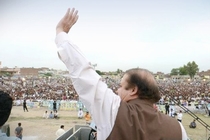 Courtesy: Martin H./WikimediaCommons
Courtesy: Martin H./WikimediaCommons
Will former Pakistani Prime Minister Nawaz Sharif prove to be his country’s saviour, one that can make Pakistan the ambitious transit economy it can be? However, the most needed and least controversial angle from which India and Pakistan’s new government can begin to engage is through business and trade.
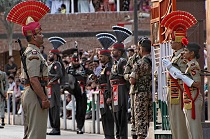 Courtesy: rwoan/Flickr
Courtesy: rwoan/Flickr
Pakistan’s national elections will take place in the backdrop of a troubled economy, severe energy crisis, and frequent terrorist attacks. Can these problems be solved if the next leadership agrees to open its territories for trade and transit purposes between India and Afghanistan?
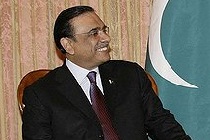 Courtesy: Kremlin
Courtesy: Kremlin
In the closing remarks of the online debate, titled ‘The civil-military equation in Pakistan,’ Daniel Markey concludes that the question for civilian leaders is not whether they can stave off military rule, but if they can find a way to put their country on a better path for the future.
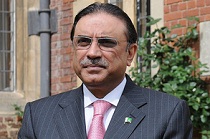 Courtesy: UK Prime Minister's Office
Courtesy: UK Prime Minister's Office
In the second round of the online debate, titled ‘The civil-military equation in Pakistan,’ Daniel Markey argues that although the power equation may not have titled completely in favour of the civilian government, today, the military’s influence in administrative affairs isn’t as strong as it previously was.
 Courtesy: Benchill/WikimediaCommons
Courtesy: Benchill/WikimediaCommons
The national election in Pakistan looks like a game of polarisation, but if democracy is meant to provide some relief and prosperity, all political parties have flopped, bottom up. The field is now wide open, and anything can happen - including a hung parliament.
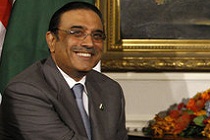 Courtesy: Eric Draper/WikimediaCommons
Courtesy: Eric Draper/WikimediaCommons
With Pakistan geared for a defining general election scheduled for May 11, Council on Foreign Relations' Daniel Markey, in a debate, titled ‘The civil-military equation in Pakistan has begun to tilt in favour of civilians,’ argues for the motion.
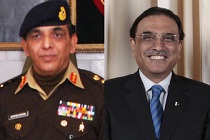 Courtesy: WikimediaCommons
Courtesy: WikimediaCommons
In the run-up to the Pakistan elections on May 11, Gateway House hosts an online debate between Ambassador Neelam Deo, Director, Gateway House, and Daniel Markey, Senior Fellow, South Asia, Council on Foreign Relations. The motion: The civil-military equation in Pakistan has begun to tilt in favour of civilians.
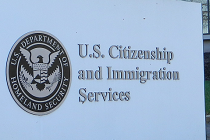 Courtesy: Xavier de Jauréguiberry/flickr
Courtesy: Xavier de Jauréguiberry/flickr
The proposed immigration reform bill, currently being debated in the U.S. Congress, contains provisions to penalize Indian IT companies for allegedly misusing the H1-B and L1 visas. How can New Delhi tackle this rising U.S. sentiment against Indian companies?
 Courtesy: Leoboudv/WikimediaCommons
Courtesy: Leoboudv/WikimediaCommons
Often, many vital inventions are left incomplete or do not reach the market as information is locked up by numerous patent holders. How does this hamper innovation, and why is it necessary to overcome the attitude of ‘anti-commons’ and foster cross-fertilization of knowledge?